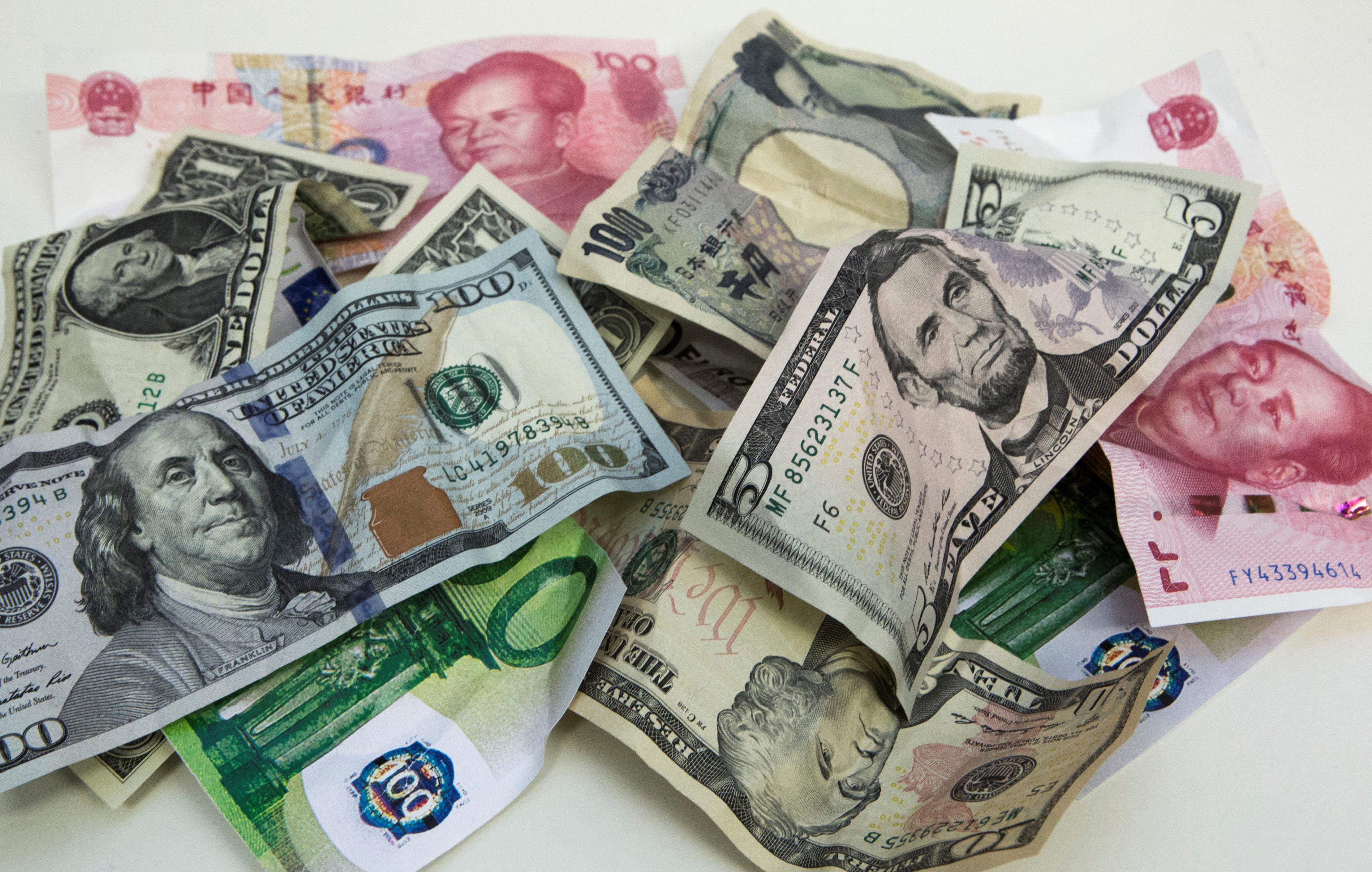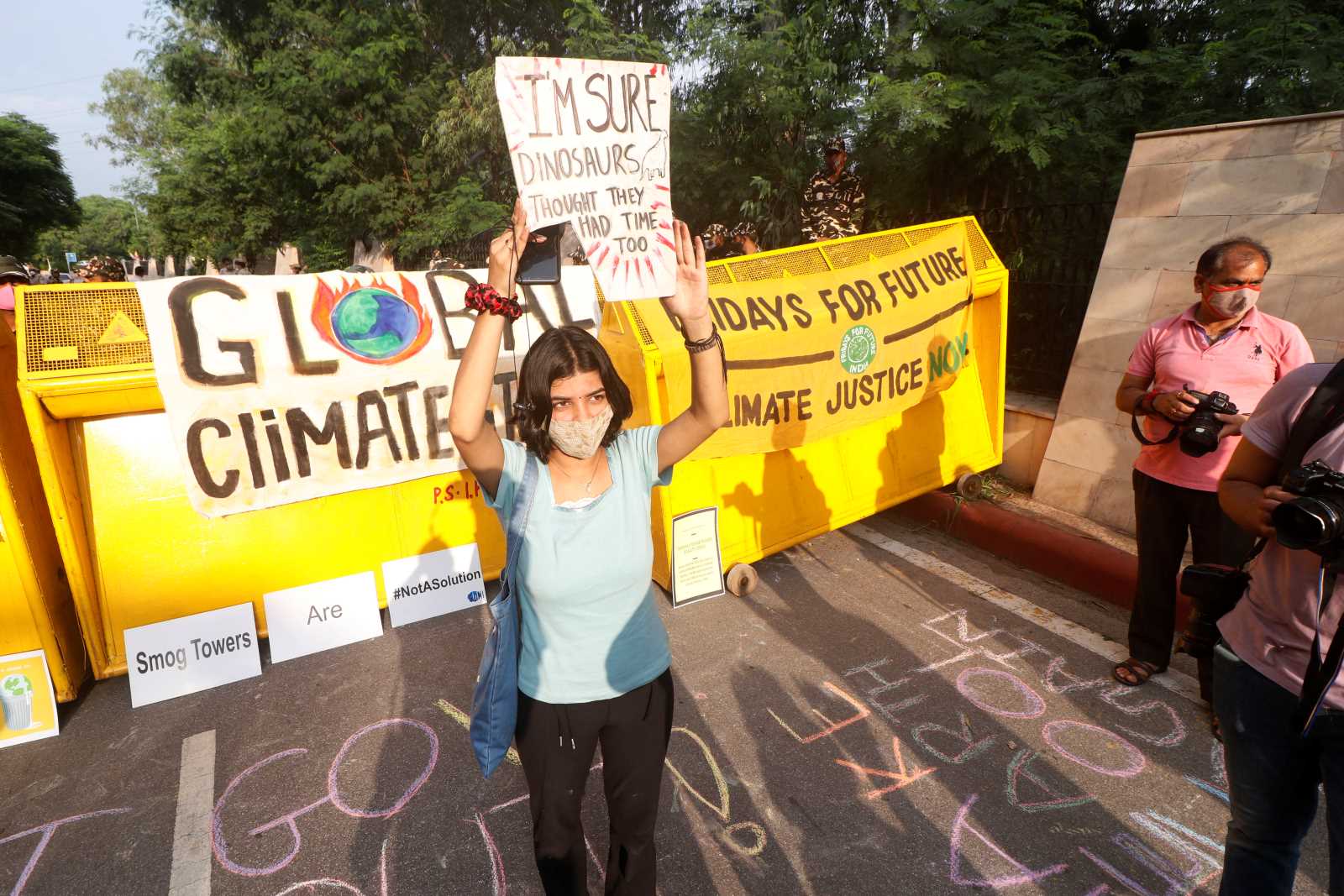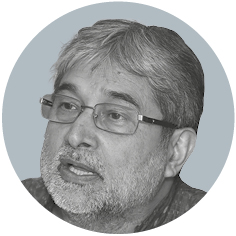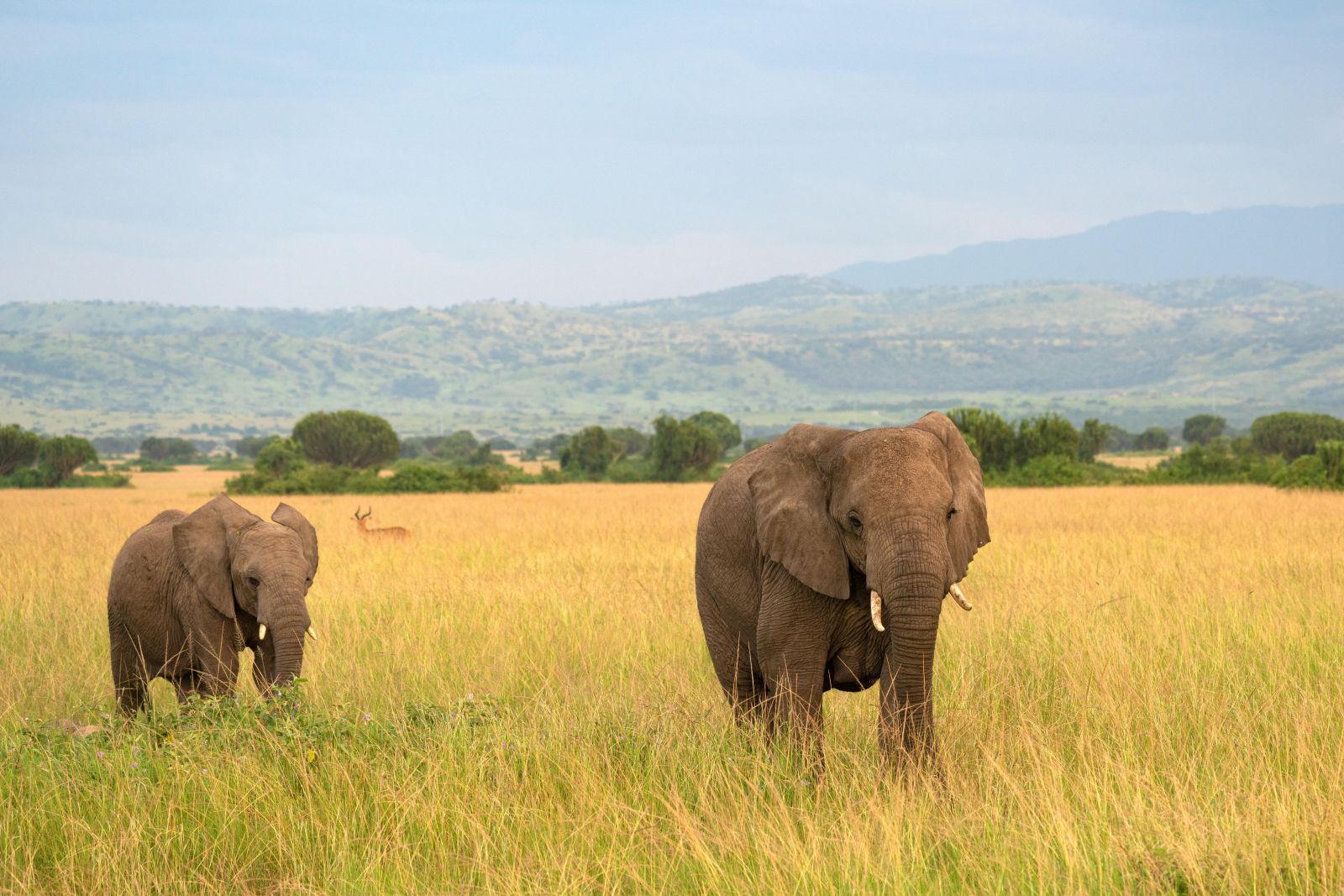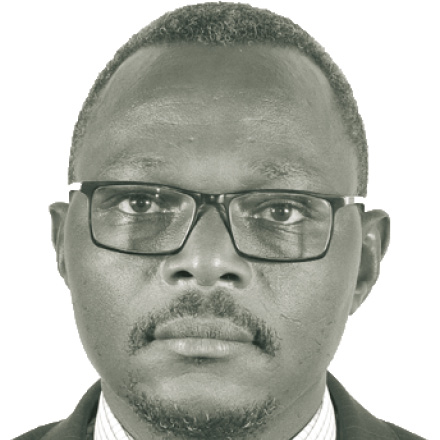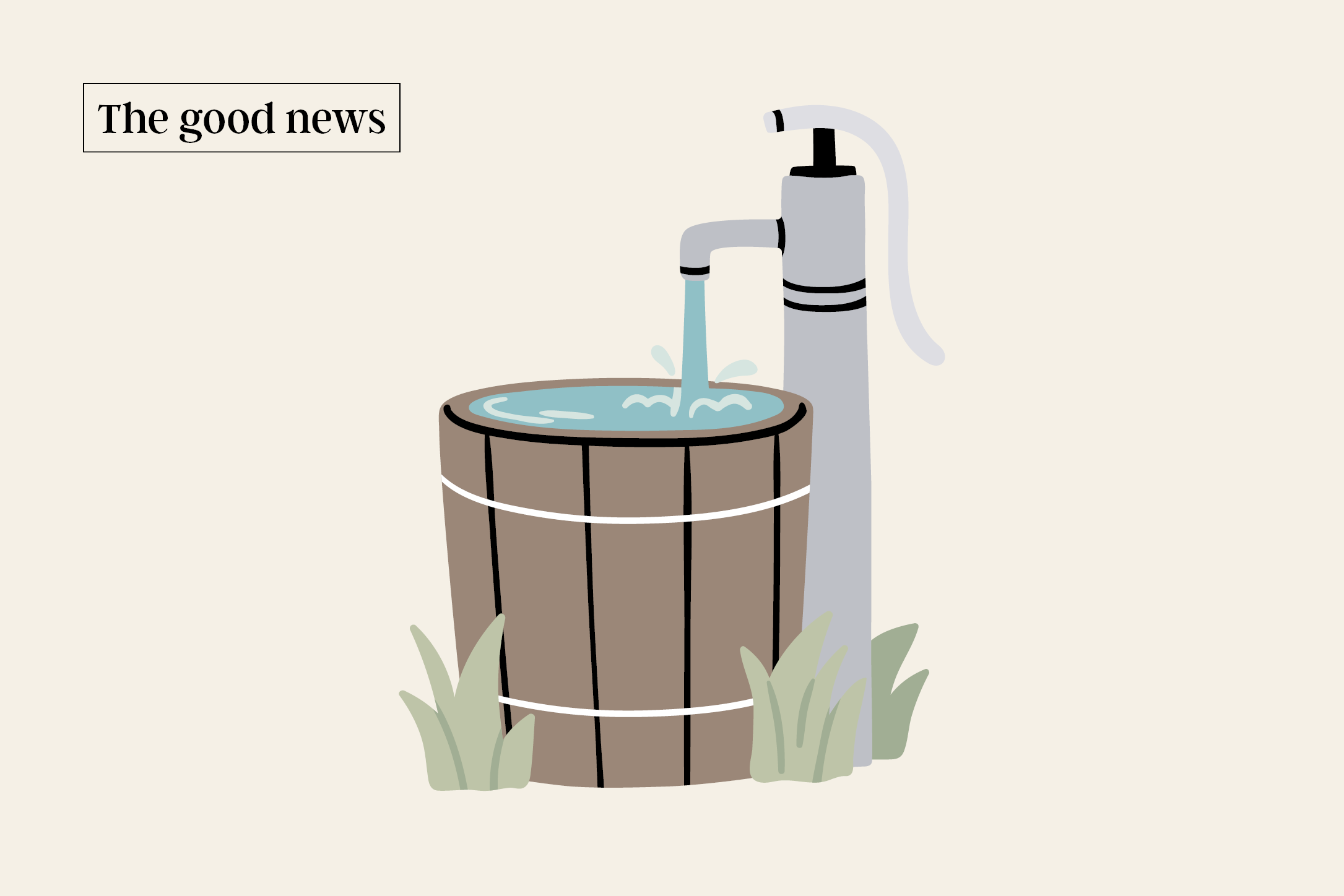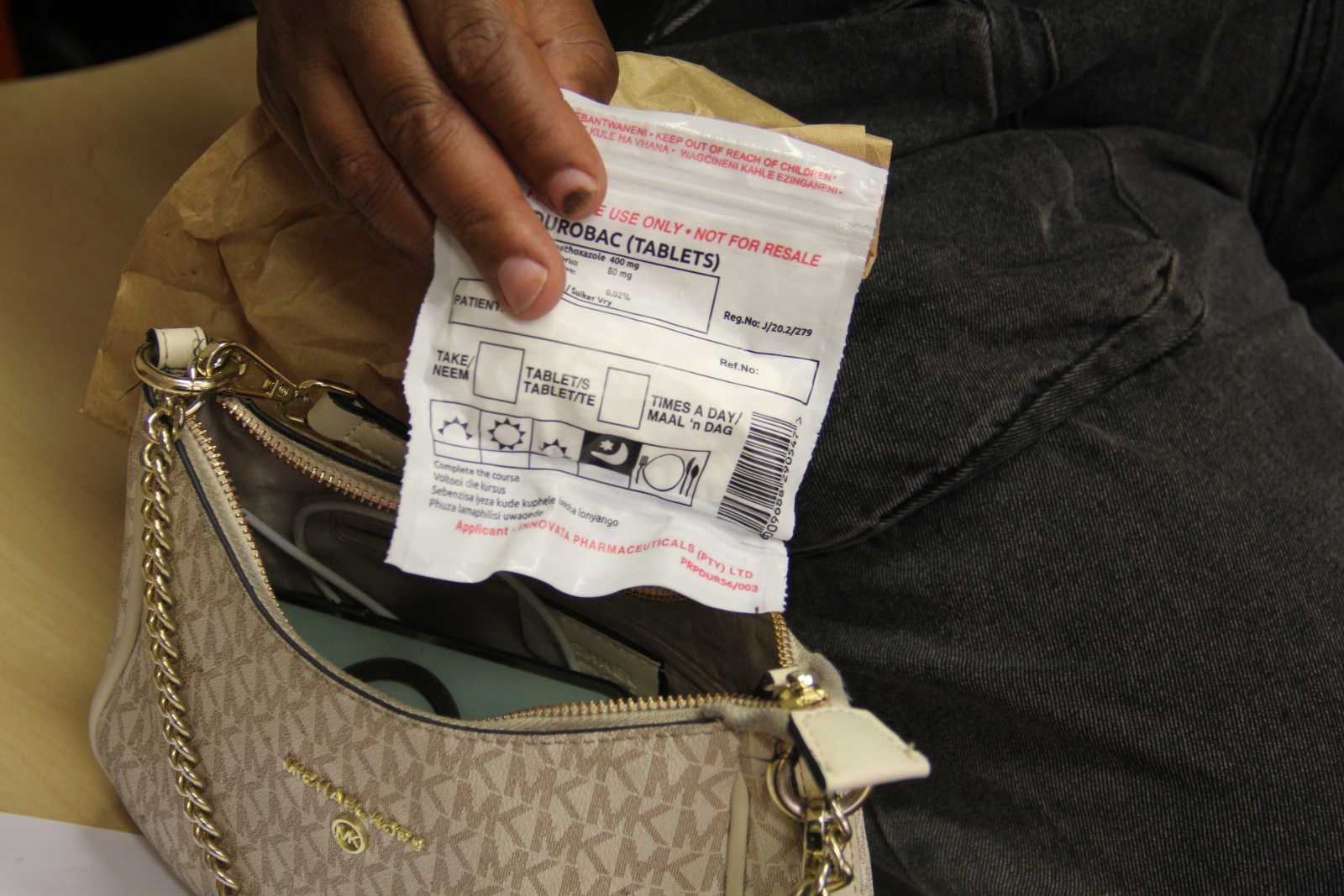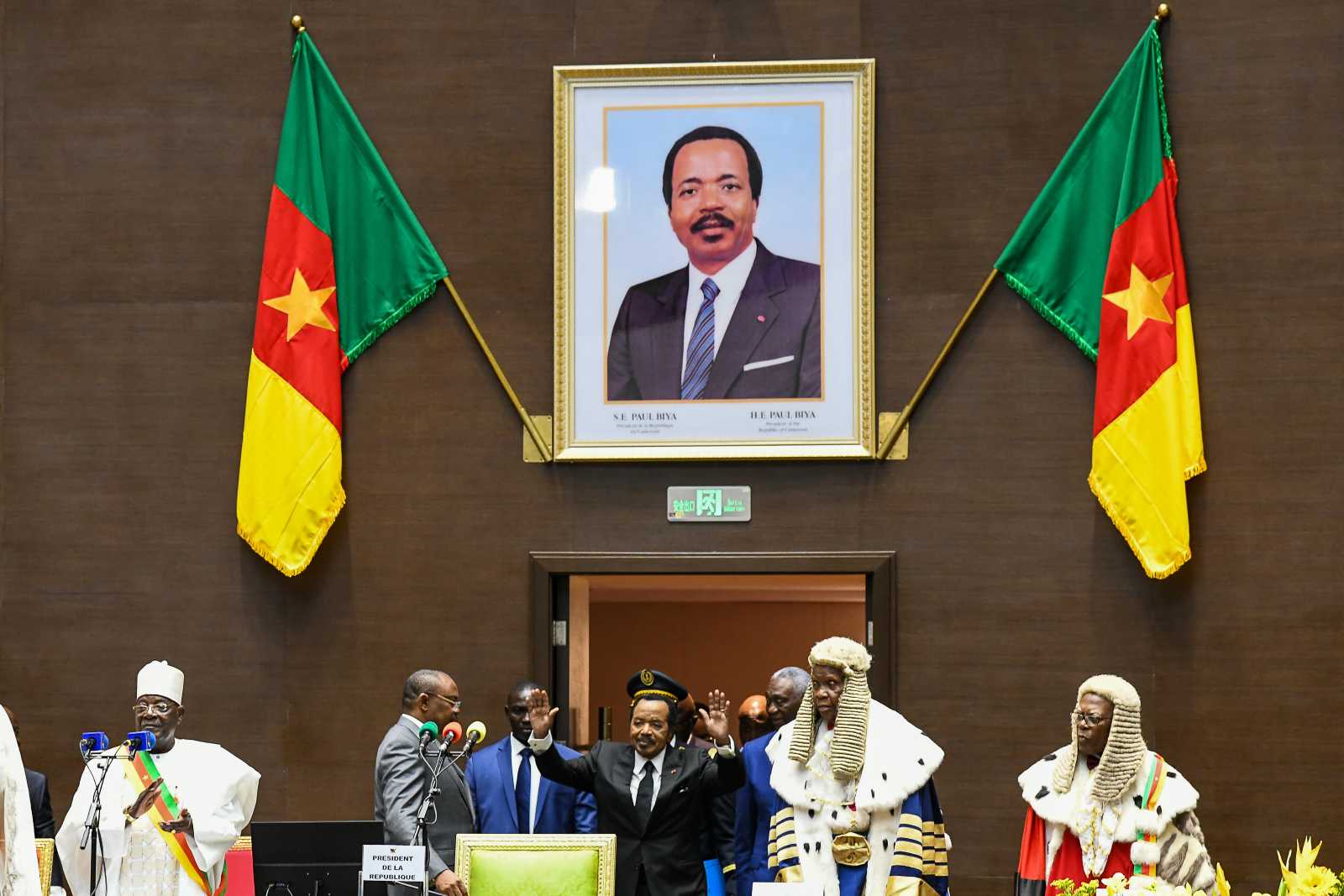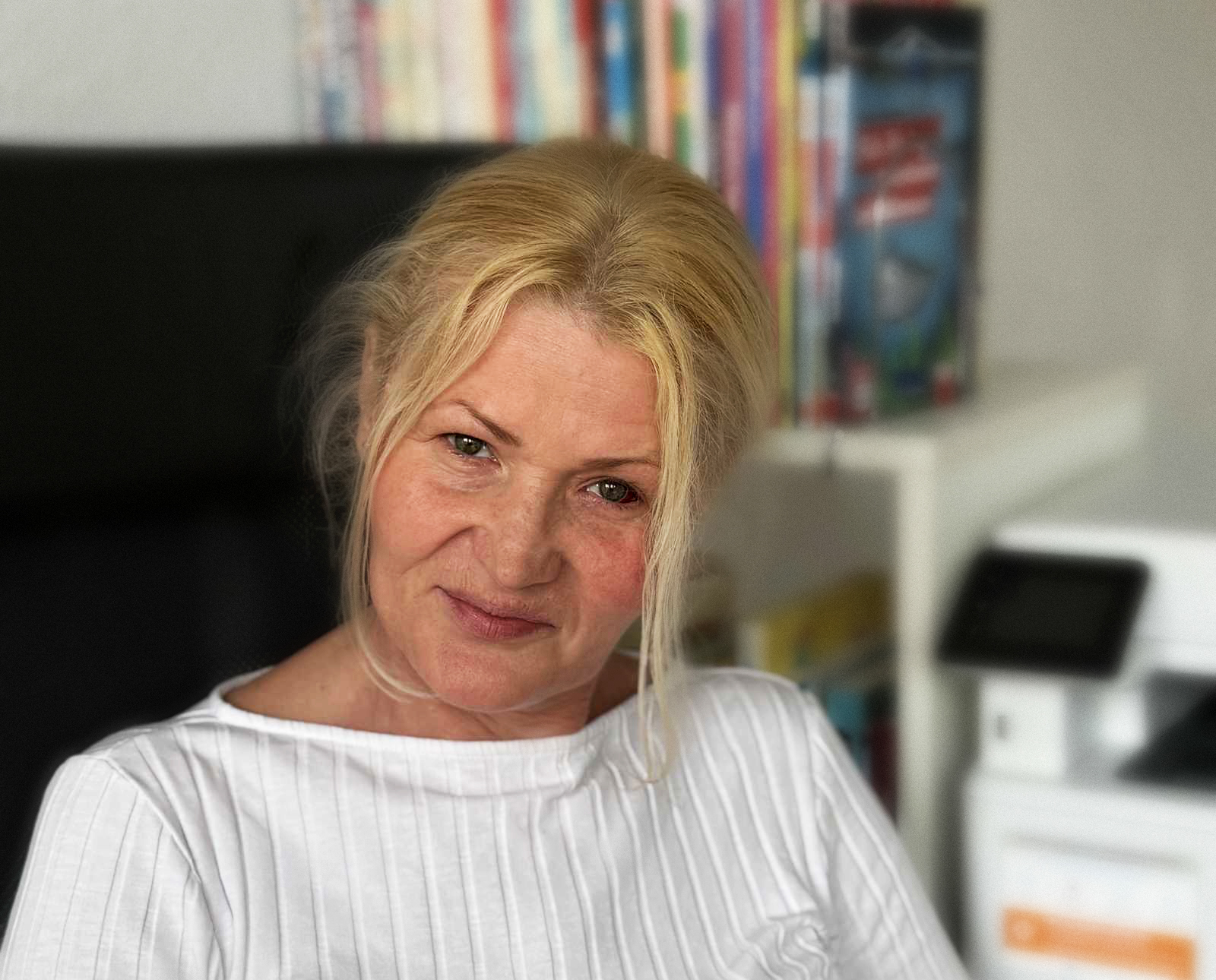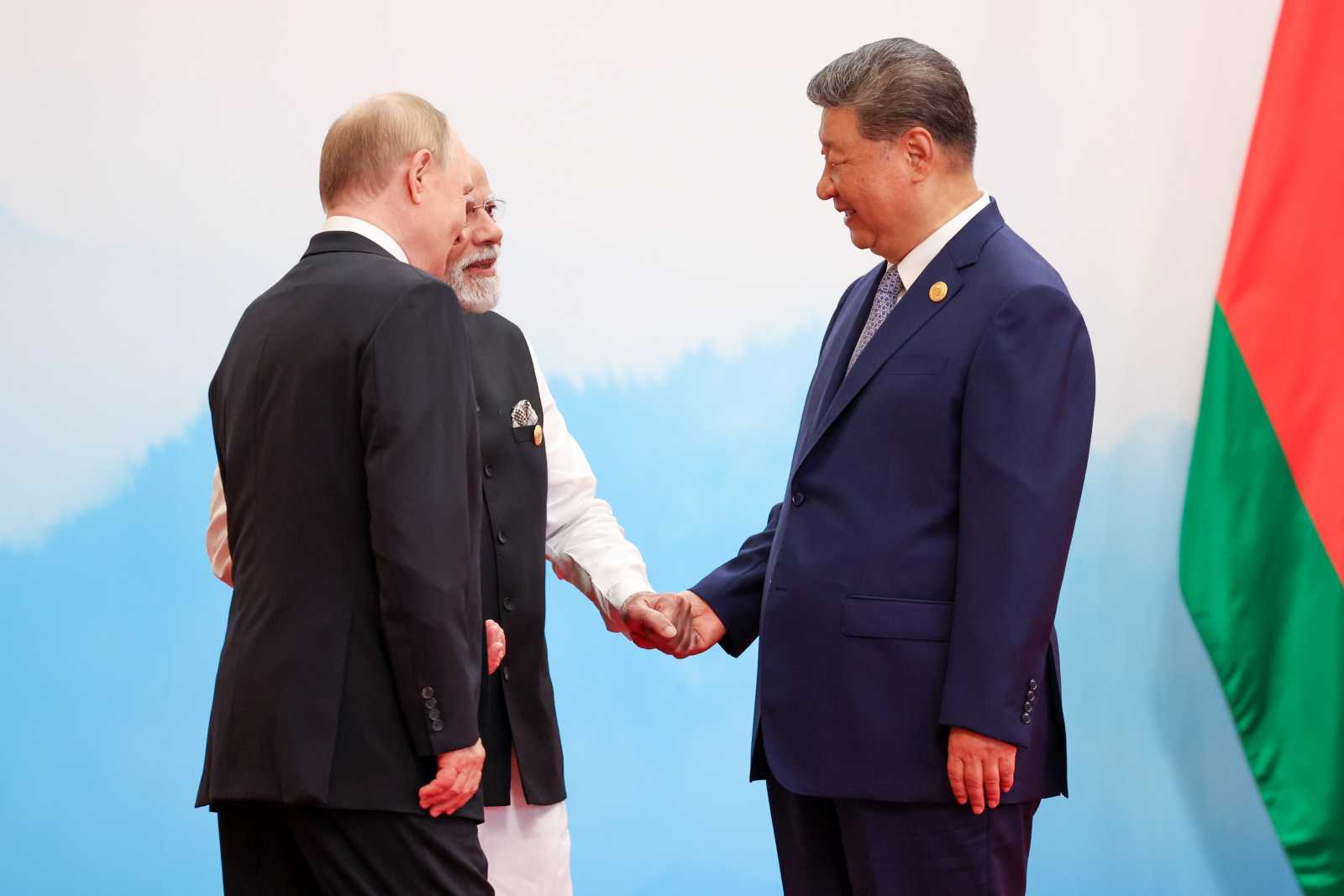Global challenges
Common goal, shared responsibility
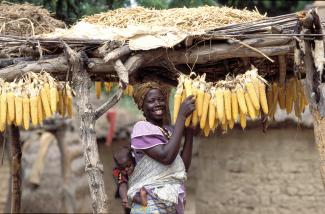
My first talks abroad were in India, where I was accompanying the delegation of the German Federal President as a guest. India, with a population of over 1 billion and meteoric economic growth, is already one of the world’s biggest emitters of carbon dioxide. Indian policies have a direct impact on global climate development. That is why we are working with India in pursuit of a common objective: climate protection. We are working together in partnership. In early February, the Indian Finance Minister and I signed two agreements for loans worth almost 900 million euros. India will use part of this commitment to feed renewable energy into its national grid. German support will be used to help India develop green energy corridors.
This first example needs to be followed by many more. For we are facing a tremendous challenge for the future: We want an end to poverty and hunger worldwide. At the same time, however, we need to safeguard the vital natural resource base of our planet – the whole of creation. These are global challenges for the survival of humankind. Development policy must provide answers. The crucial question is whether we will manage to halt climate change and adapt to it. Climate change is not just the cause of new poverty and vulnerability, it can annihilate decades of development in our partner countries. The increasing number of ever more violent storms, of droughts and once-in-a-century floods are proof of this. Natural disasters that used to hit us or other regions once a century now occur several times in a decade. The typhoon Haiyan that hit the Philippines in November 2013 was unlike any previous storm and a painful reminder that we are not dealing with abstract scenarios put forward by concerned scientists. This is about our present and our children’s future.
Developing countries are the hardest hit
Climate change is felt most strongly in developing countries, in particular in sub-Saharan Africa, small island states and least developed countries. These countries depend on agriculture, a sector that is feeling the effects of climate change very strongly. At the same time, these countries lack the capacities to adapt to the changes. They need our financial, technological and logistic support in order to adapt to the effects of climate change.
I am very much concerned about the effects of global warming on food security. In regions with rapid population growth the situation is only aggravated. Poor people and those already threatened by hunger suffer the most – that is about a quarter of all people in sub-Saharan Africa. According to World Bank estimates, a temperature rise of 1.5 degrees Celsius by 2030 will mean a 40 % loss in land for growing maize – the main staple food in large parts of Africa. And the same goes for sorghum. Even if temperatures were to rise by less than two degrees by 2050, total agricultural yields in sub-Saharan Africa would fall by 15 to 20 %. According to the 2013 World Bank report Turn down the Heat, things could get far worse. Temperatures could rise by two degrees in the next 20 to 30 years and by as much as four degrees by the end of the century.
Stable climatic conditions on our planet affect us all! Categories like poor and rich, recipients and donors miss the point. We are all in the same boat now and we need to look for solutions together.
When the deadline for the United Nations Millennium Development Goals is up next year, we, the international community, will have to take a look at our planet as a whole.
2015 will be crucial: the international community must agree this coming year on a new, universal set of global goals to replace the current Millennium Development Goals, linking development and sustainability goals, since the two go together.
At the same time we need a climate action agreement that goes beyond the Kyoto Protocol and requires all industrialised and developing countries to take responsibility. A new climate agreement is to be adopted by the end of 2015 with the – still far-off – goal of limiting the global increase in temperature to below two degrees.
Although we have two distinct political processes – here a global set of goals, there a climate agreement – they need to complement and reinforce one another. That is what I will be pushing for, not least because Germany will assume the G8 presidency in 2015, thus taking on a special responsibility.
As a wealthy industrialised country, Germany not only has a moral and ethical obligation; it is in our own interest and we have the capacities to take
a leading role in this process. Germany can offer high-tech solutions as regards energy and environmental technologies. That is why we must now show that we are the ones who can indeed successfully master the energy turnaround. People I have spoken to – including, most recently, UN Secretary-General Ban Ki-moon – tell me that they expect a lot from us.
German contributions
Climate change adaptation is all about adapting a country’s national development plans and disaster risk management to changing climatic conditions. We are, for instance, assisting Ethiopia in crafting a policy for a climate-resilient green economy. The country is already feeling the effects of climate change and has set itself the objective of becoming carbon neutral by 2025.
When it comes to adapting ecosystems, some aspects we are supporting are sustainable farming practices, expanding protected areas and making sustainable use of their peripheries, conserving mangroves and protecting water catchment areas. Other important areas of support are investments to safeguard highly vulnerable infrastructure, e. g. coastal and bank protection, and urban development.
Besides training experts, investments in renewable energy and energy efficiency are often a focus of support. In Morocco, for example, 95 % of the energy supply comes from imported fossil fuels, although it has some of the best sites in the world for solar and wind energy. In order to help harness this potential, we have so far made 800 million euros available as reduced-interest loans and grants for solar projects. The world’s largest solar power plant is being developed in the Moroccan desert with German support.
Multilateral development cooperation: Germany is the third largest donor to the Global Environment Facility (GEF) and contributes 550 million euros to the World Bank’s climate investment funds. These funds are a bridging facility until the Green Climate Fund (GCF) – a key instrument of future multilateral climate financing – can provide funding for concrete programmes and projects.
Cooperation with the private sector: Public funding alone will not be sufficient to meet the great need for investment in climate protection and adaptation. Channelling private financial flows towards sustainable, climate-friendly investment will be an important key to successful climate policies. Official climate funding can provide the incentives to facilitate market development and create an enabling environment. Many successful projects under the develoPPP.de programme demonstrate the scale of potential opportunities, e. g. a project in Senegal to supply rural communities with energy generated from
a waste product, peanut shells.
At the 2009 global climate conference in Copenhagen the industrialised countries pledged to support developing countries’ efforts to achieve low-emission and climate-resilient development by providing $ 100 billion a year from a variety of sources as of 2020. The German government remains committed to its pledge. We have practically quadrupled our climate funding since 2005, going from 471 million euros to about 1.8 billion euros in 2013!
However, the international community can only be successful if developing and emerging economies are on board too. For not only are they affected by climate change, they are also now responsible for about two thirds of global greenhouse-gas emissions. In only a few years time, the emissions from developing and emerging economies that have accrued since the beginning of the industrial age will have overtaken those from industrialised countries. Without emerging economies like India, China or Brazil, we will not achieve the international climate goals. These countries are therefore our most important partners in global climate action.
At the same time we are aware that effective poverty reduction depends on further economic progress. That notwithstanding, developing countries should not repeat the errors of the industrialised countries – especially as regards resource-depleting consumption patterns and practices. We can and must help our partners to embark on a responsible and sustainable growth path. This includes new solutions that we can offer; but it is just as important for us to take credible action too. Sustainability begins at home. We, too, must continue to develop our concept of growth. My model therefore is a market economy based on ecological and social values.
Climate policy – an opportunity for development
To me it is absolutely clear that markets and power need both social and ecological limits worldwide. This requires us, in the industrialised countries, to develop a new global ethos of responsibilty. It is unacceptable for 20 % of all people to consume 80 % of resources. So we cannot simply point the finger at emerging and developing countries, we must first of all face up to our own responsibilties. Only then can we be credible equal counterparts for our partners in developing countries. If we do that, we will see that climate action creates a huge win-win situation for development policy. Just recently, on my first visit to the African Union, I talked about new flagship projects for the green economy and agriculture. Green value chains protect the climate, ensure food security and create jobs. In ten green centres we will demonstrate sustainable economic practices in agriculture. That will contribute considerably both to achieving food security and to climate protection. Through these projects the BMZ will meet its global responsibility as a ministry for the future. And I would like to invite all those who share our vision to think of climate policy as development policy in the best sense of the word and act accordingly.
Gerd Müller is Germany’s federal minister for economic cooperation and development.
http://www.bmz.de
